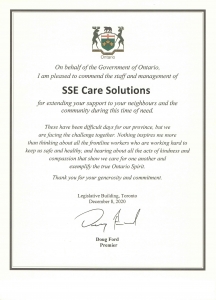Dr. Elena Hernandez-Kucey says it’s a something dentists across North America have been talking about: a noticeable increase in stress-related dental issues during the COVID-19 pandemic.
“We are seeing more joint problems, people arriving (in clinics) saying: ‘I’m not sleeping well, I’m waking up, my face hurts,’” Hernandez-Kucey told Global News.
The Edmonton dentist explains tension and anxiety, whether a patient is aware of it or not, can cause teeth grinding and clenching.
“That might cause a fracture or complication to the nerve health of the tooth,” said Hernandez-Kucey.
Staff of the University of Alberta dental clinic have been seeing similar problems over the past year.
They’re also noticing “mask mouth.”
“Some people when they wear masks, they tend to breathe through their mouth. So this can cause dryness in the mouth,” Dr. Liran Levin told Global News.
The head of the U of A’s periodontology division explains dryness can enhance gum diseases or encourage inflammation.He also recommends drinking more water and trying to breathe through your nose while you’re wearing a mask.
Hernandez-Kucey says mask-wearing has some benefits.
If you smell your own bad breath — or halitosis — that can be a sign of potential infection, something you might not have noticed otherwise until it’s more advanced.
Patients are also taking advantage of this time when everyone’s faces are covered to hide major dental work.
“Perhaps someone might be a little bit nervous about having braces for example… or losing a front tooth… or losing all their teeth and perhaps going to a denture,” said Hernandez-Kucey.
Both dental professionals say patients who are nervous to leave the house have been putting off appointments.
“Maybe delaying what would have been an easy minor adjustment or small filling, small restoration, to now (becoming) something a lot more significant,” said Hernandez-Kucey.
Now is not to time to neglect oral health.
A recently published study from Qatar found patients with periodontitis, the most severe form of gum disease, were at least three times more likely to experience COVID-19 complications, including the need for assisted ventilation, ICU admission and death.
Source: https://globalnews.ca/news/7719939/dentists-mask-mouth-teeth-dental-stress-jaw-covid-19/
Su-Ling Goh

